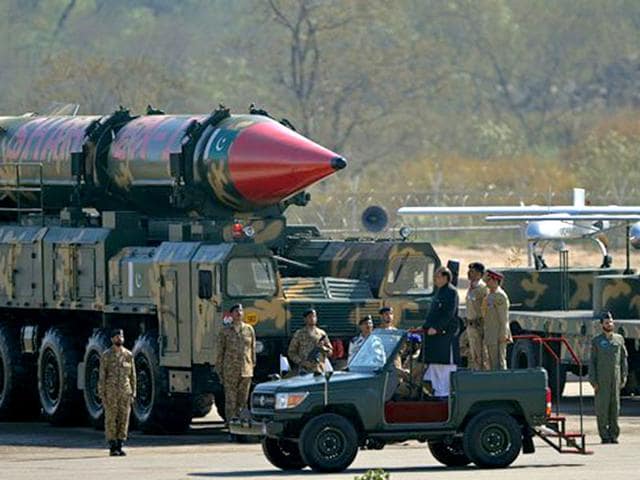Introduction
Youm e Takbeer, observed on May 28th, marks a day of immense pride for Pakistan. This day commemorates Pakistan’s successful nuclear tests in 1998, making it the first
Youm e Takbeer is being celebrated in Pakistan today
Islamic nation to join the nuclear club. The significance of Youm-e-Takbeer resonates deeply with every Pakistani, symbolizing national strength, scientific achievement, and geopolitical resilience. Let us delve into the history, significance, and celebrations of this remarkable day.
Historical Background
The Road to Nuclear Capability
The journey towards nuclear capability was long and arduous for Pakistan. The quest began in the early 1970s under the leadership of then-Prime Minister Zulfikar Ali Bhutto. Following India’s first nuclear test in 1974, Pakistan felt an urgent need to develop its nuclear arsenal to maintain regional balance and security. The relentless efforts of Pakistani scientists, particularly under the guidance of Dr. Abdul Qadeer Khan, eventually bore fruit.
Chagai-I: The Day of Testing
On May 28, 1998, Pakistan conducted five underground nuclear tests in the Chagai district of Balochistan. These tests, known as Chagai-I, were carried out in response to India’s second round of nuclear tests earlier that month. The successful detonations made Pakistan the seventh nuclear power in the world and the first in the Muslim world, marking a significant milestone in its history.
Significance of Youm-e-Takbeer
National Security and Deterrence
The primary significance of Youm-e-Takbeer lies in its contribution to national security. The acquisition of nuclear capability provided Pakistan with a robust deterrent against potential aggressors. This strategic advantage has been crucial in maintaining a balance of power in South Asia, particularly in the context of its complex relationship with neighbouring India.
Scientific and Technological Achievement
Youm-e-Takbeer is also a celebration of Pakistan’s scientific and technological prowess. The successful nuclear tests showcased the country’s ability to master advanced technologies and execute complex scientific endeavours. This achievement instilled a sense of national pride and confidence in the capabilities of Pakistani scientists and engineers.
Former President of Iran, Ebrahim Raisi: Biography
Geopolitical Implications
On the global stage, Pakistan’s entry into the nuclear club had profound geopolitical implications. It altered the strategic calculus of the region and drew international attention to South Asia. Despite facing sanctions and diplomatic pressure, Pakistan’s resolve to safeguard its national interests remained unshaken.
Celebrations and Commemorations
Official Ceremonies and Events
Every year, Youm-e-Takbeer is celebrated with great enthusiasm across Pakistan. The day begins with special prayers and Quran recitations, seeking blessings for the nation’s prosperity and security. Official ceremonies are held in major cities, with prominent government officials, military leaders, and scientists attending.
Media Coverage and Public Sentiment
The media plays a significant role in commemorating Youm-e-Takbeer. Documentaries, interviews with key figures involved in the nuclear programme, and special broadcasts highlight the historical events leading up to the tests. Public sentiment is overwhelmingly positive, with citizens expressing pride in their country’s achievements through various platforms.
Educational and Cultural Programs
Educational institutions organise special programs to educate the younger generation about the importance of Youm-e-Takbeer. Seminars, exhibitions, and competitions are held to engage students and instill a sense of patriotism. Cultural programs, including patriotic songs and performances, add to the festive atmosphere.
Reflections on Youm-e-Takbeer
Lessons Learned
Youm-e-Takbeer serves as a reminder of the sacrifices and determination required to achieve national goals. It underscores the importance of scientific advancement and the need for continuous investment in research and development. The day also highlights the significance of maintaining a strong defense posture in a volatile geopolitical environment.
Future Aspirations
Looking ahead, Youm-e-Takbeer inspires future generations to build on the achievements of the past. Pakistan continues to strive for technological excellence and seeks to leverage its scientific capabilities for peaceful purposes, including energy production and medical advancements. The legacy of Youm-e-Takbeer drives the nation towards a brighter, more secure future.
Conclusion
Youm-e-Takbeer is more than just a day of celebration; it is a testament to Pakistan’s resilience, scientific achievement, and strategic foresight. As the nation commemorates this landmark event, it reflects on the journey that brought it to this point and looks forward to future advancements that will continue to elevate its standing on the global stage.
FAQs
What happened on 28 May in Pakistan?
On 28 May 1998, Pakistan conducted its first successful nuclear tests in Chagai, Baluchistan, becoming the seventh nuclear power in the world.
What is Youm-e-Takbeer day?
Youm-e-Takbeer, meaning “The Day of Greatness,” is a national day in Pakistan celebrated on 28 May to commemorate the country’s successful nuclear tests in 1998.
Why is 28 May a holiday in Pakistan?
28 May is observed as a holiday in Pakistan to celebrate Youm-e-Takbeer, marking the anniversary of the country’s nuclear tests.
Is the bank closed on 28 May 2024?
Yes, banks in Pakistan are typically closed on 28 May in observance of Youm-e-Takbeer.







